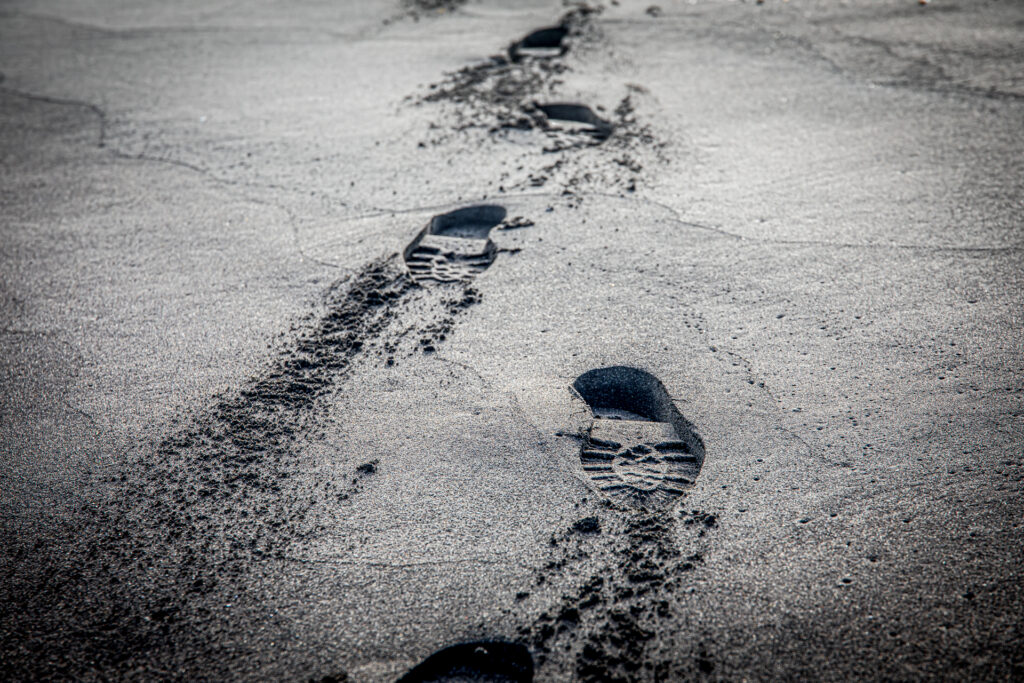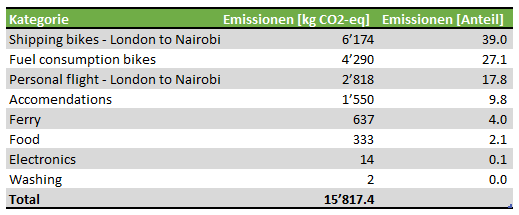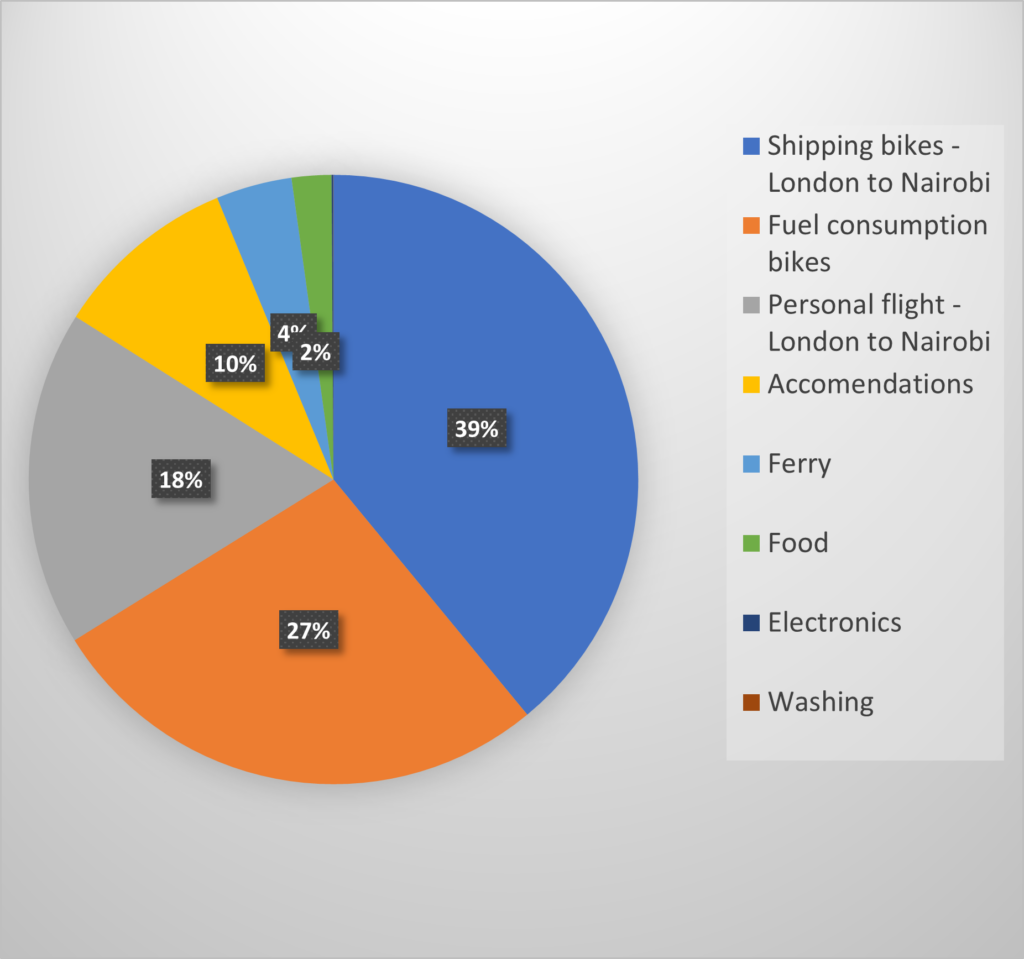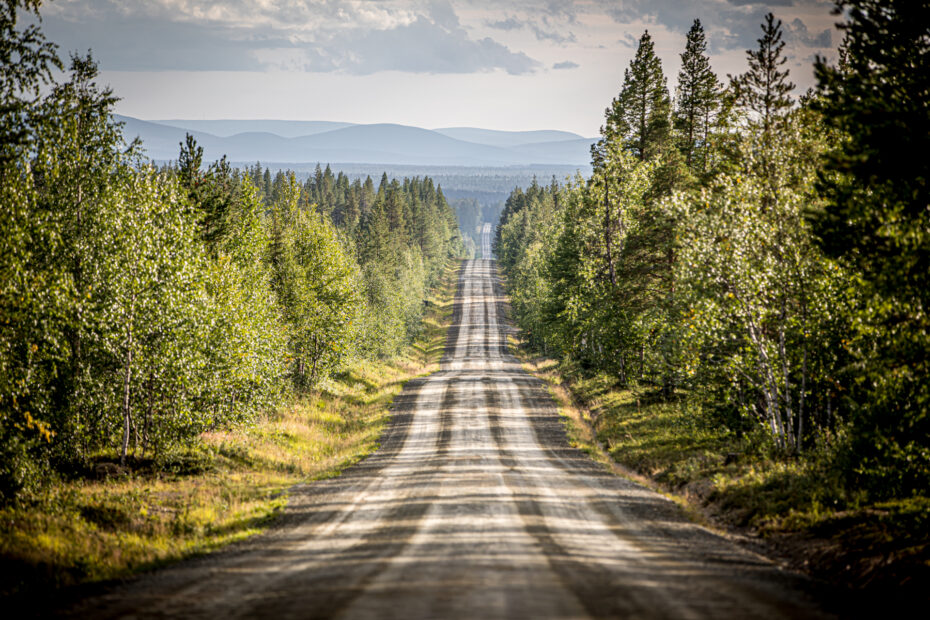When planning the trip, we would try to cover as much as possible just riding our motorcycles over land. However, due to the travel restrictions regarding Corona, we could’t ride south into Africa anymore. Spontaneously we choose to go north at first instead. This adjustment of the route has a serious disadvantage: although we only cover a little more kilometers, we now add significantly more flight and ship kilometers. In view of the ecological factors, this is quite painful for us. We are therefore all the more grateful for the partnership with carbon-connect AG. a provider of voluntary CO2 compensation measures, who ensures that we travel completely climate-neutral. For the original route, directly to Africa, an estimate of 15-20 tons of CO2 was made. That is in comparison more than the annual Swiss per capita consumption of 12 tons.

1 ton is caused for example by:
– 5000 KM
by car
– 1 person flying from Zurich to Grand Canaria and back (eco)
What does climate-neutral mean?
The term “climate-neutral” describes products or services that do not increase the amount of climate-damaging gases in the atmosphere. Climate-neutral products and climate-neutral services have offset the corresponding CO2 emissions, so a project is financed which saves or reduces CO2. For example, projects can be supported that provide green energy (instead of fossil fuels), plant trees, protect forest areas. The clever minds behind carbon-connect AG comprehensively calculate our CO2 footprint over the entire journey, taking everything we do into account.
How does CO2 compensation work?
Every person and every economic activity leaves a CO2 footprint. In Switzerland, this is an average of 12.5 tons of CO2 per capita/per year. We can reduce our CO2 footprint by acting in a climate-conscious manner (e.g. flying less, using public transport more, eating less meat). Remaining CO2 emissions can be offset or compensated. CO2 compensation/climate offsetting supports a climate protection project that saves CO2 emissions at a (usually) different location, e.g. by planting trees (trees bind CO2). Thus, in CO2 compensation/climate compensation, the same amount of CO2 that is produced at a location A is offset by a climate protection project at location B. While we are trying to keep our CO2 emissions as low as possible in the first place during the entire trip, carbon-connect AG will offset our CO2 footprint accordingly by investing in reforestation projects.
Why we stand up for the forest with carbon-connect AG:
The benefits of a tree for climate protection can be found worldwide, no matter where it is planted. CO2 knows no national borders, so it does not matter where CO2 is emitted or where a CO2 sink is promoted and supported by reforestation. Afforestation abroad is much cheaper than afforestation projects in Switzerland and Europe and is also a means to fight poverty, especially in developing countries. Forests already form the basis of life for over 1.5 billion people worldwide. Moreover, trees planted in the south not only help against the climate crisis (CO2 storage is up to twice as much as in European mixed forests), they also combat drought and desertification and protect against erosion. Deforestation not only destroys the environment, it also destroys the livelihood of many people, especially farmers in developing countries. The foundation partners from carbon-connect AG work actively with the local population and support them in the sustainable use of natural resources and reforestation. In this way, they create a livelihood through income and secure the food situation.

We alone will not stop climate change, nor are we free from mistakes in our daily actions, but we are convinced that together we can all bring about decisive change without the individual having to make major sacrifices. When you are close to nature and appreciate it as much as we do, you can no longer knowingly cause it unnecessary harm. Every day we try to make a contribution to a better world within the scope of our possibilities. Surprisingly, these possibilities are constantly increasing and are becoming easier to implement. If we can do that, anyone can.
Not only will we be happy to share more about our experiences on this topic and with various products of everyday life, where we have chosen a more sustainable alternative to the old familiar products, we also letting you know our actual CO2 emissions and what caused them during this trip. In order to estimate the correct numbers we provide carbon-connect AG with all kind of details. For example: our CO2 footprint increases much faster when we stay in hotels (the more luxury, the higher the CO2 emissions) compared to camping or homestays.
This post will be updated approx. every two weeks with a chart showing the actual numbers about our CO2 footprint.
Perhaps these insights will inspire you to take a more climate-friendly approach to travel in the future as well. Or have you already gained experience with sustainable travel and would like to share it with us? We are looking forward to new inputs!

